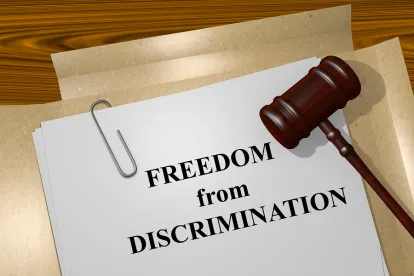On April 4, 2017 the U.S. Court of Appeals for the Seventh Circuit ruled in Hively v. Ivy Tech Community College of Indiana (Docket No. 15-1720) that Title VII of the Civil Rights Act of 1964 prohibits discrimination on the basis of sexual orientation. The court’s decision is significant because while the Act expressly forbids employers from discriminating on the basis of race, color, religion, sex, or nation origin, it does not specifically mention sexual orientation.
Kimberly Hively, a former part-time professor, brought a discrimination suit against Ivy Tech Community College of Indiana alleging that she was denied a full-time position because she is a lesbian. The district court dismissed her complaint finding that sexual orientation was not a protected class under the Act, as it was not contemplated by Congress when it passed Title VII. Last year, a three-judge panel of the Seventh Circuit affirmed the district court’s ruling, finding that Ms. Hively did not have standing to bring suit under Title VII because sexual orientation is not a class protected by the Civil Rights Act. In response, Ms. Hively requested a hearing with the entire panel of the Seventh Circuit.
In an 8 to 3 ruling in favor of Ms. Hively that overturned its previous decision, the Seventh Circuit found “it would require considerable calisthenics to remove the ‘sex’ from orientation.” Therefore, the court held that “discrimination on the basis of sexual orientation is a form of sex discrimination.” In its opinion, the court explained that its ruling was based upon previous United States Supreme Court decisions involving employment discrimination and LGBT employee rights, “as well as the common-sense reality that it is actually impossible to discriminate on the basis of sexual orientation without discriminating on the basis of sex.”
Though the Equal Employment Opportunity Commission has maintained the position that LGBT employees are protected from discrimination by Title VII, this is the first ruling of its kind from a federal appellate court. Prior to the Seventh Circuit’s decision, every federal appellate court to address the issue of whether LGBT employees are entitled to protections under the Civil Rights Act found that they are not. For example, last week in Christiansen v Omnicom Group, Inc., a panel of the U.S. Court of Appeals for the Second Circuit ruled against an employee in Georgia who alleged that his manager discriminated against him by repeatedly taunting him because he is gay. Last month in Evans v. Georgia Regional Hospital, a three-judge panel in the U.S. Appeals Court for the 11th Circuit Court upheld the dismissal of a discrimination case brought by a female employee who claimed that she was forced out of her position as a security guard because she is a lesbian and did not “carry herself in a traditional woman manner”.
Although Congress has consistently rejected amending Title VII to include sexual orientation as a protected class, twenty-two states (California, Colorado, Connecticut, Hawaii, Illinois, Iowa, Maine, Maryland, Massachusetts, Minnesota, Nevada, New Hampshire, New Jersey, New Mexico, New York, Oregon, Rhode Island, Vermont, Washington, and Wisconsin) plus Washington D.C. and Puerto Rico, have enacted laws prohibiting workplace discrimination based on sexual orientation. Unfortunately, the enactment of state laws prohibiting discrimination on the basis of sexual orientation does not address or eliminate the issue on the federal level. Several federal courts are presently wrestling with the issue of the application of the Civil Rights Act to sexual orientation claims. The ongoing struggle with the application of the Civil Rights Act to sexual orientation discrimination claims will likely lead to the issue being addressed by the Supreme Court. Until the Supreme Court weights in, employers should consult with their counsel to ensure that their actions remain in compliance with both state and federal laws and regulations.




 />i
/>i

